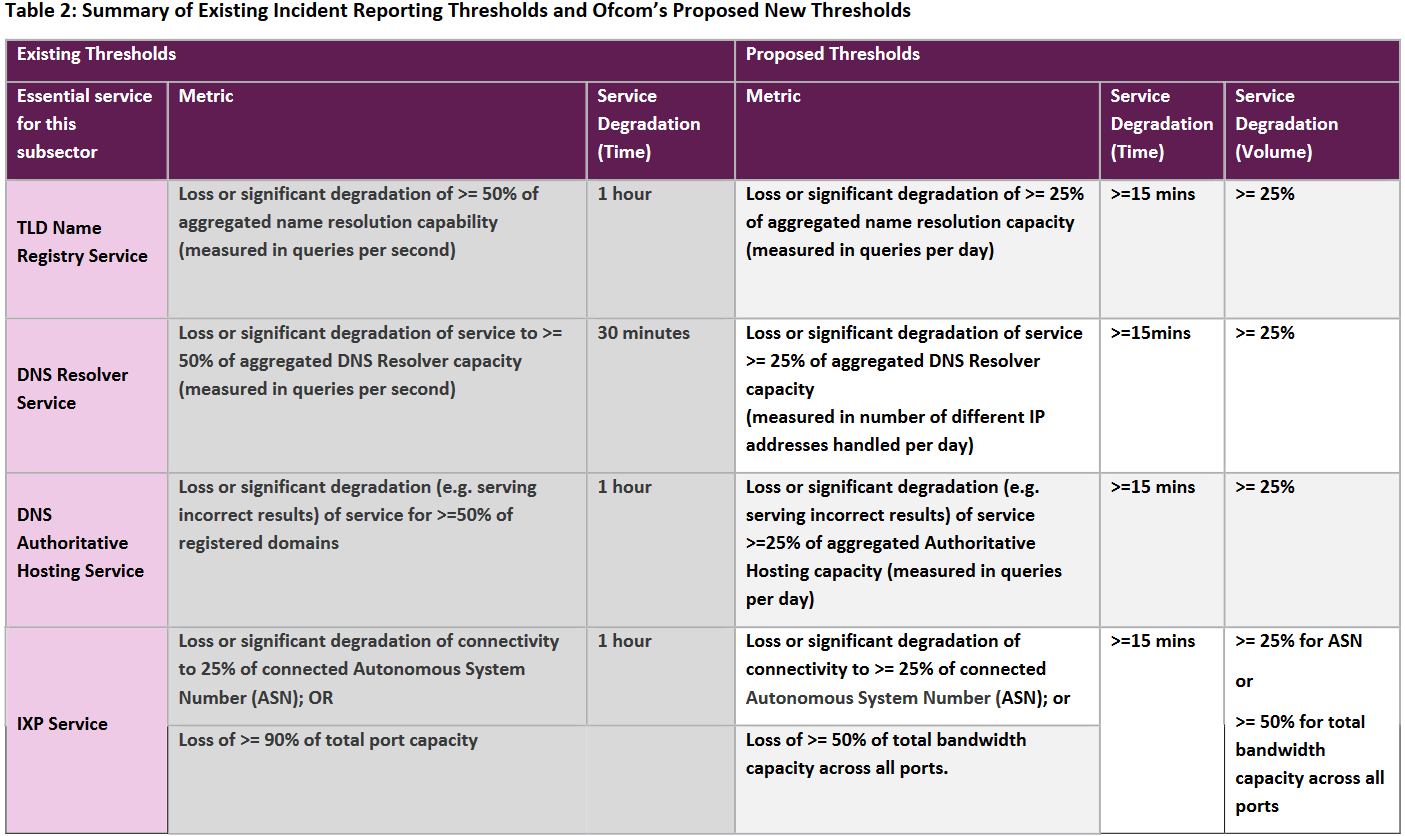Ofcom to be Notified of More UK Network and Internet Disruptions

The telecoms regulator, Ofcom, has today updated their Network and Information Systems (NIS) guidance by lowering their thresholds, which will require UK Operators of Essential Services (OES) – such as top-level domain name registries, DNS providers and internet exchanges (IXP) – to inform them of less severe outages.
Operators are already required to notify Ofcom of any incident – such as an outage – that has a “significant impact on the continuity of the essential service they provide“, which could conceivably affect millions of consumers and businesses, often at a huge cost. But shorter outages, albeit those that can occur on a wider scale, can still be highly disruptive (e.g. 1 hour of downtime due to a DNS-related outage could cost some larger businesses hundreds of thousands of pounds).
The regulator noted last year that several recent outages (since 2020) in the Digital Infrastructure subsector were not reported to them, but which were widely reported in the media. “While they fell below the previous reporting thresholds, we believe they could have had a significant impact on the continuity of essential services,” said Ofcom.
Advertisement
The suspicion is that this is probably because the outages often fell below the existing reporting thresholds. Depending upon the event, OES operators might only need to report an outage if it lasts longer than 30 minutes to 1 hour. But the new thresholds change that and require such operators to report outages that last for 15 minutes or longer and which impact 25% or more of the service (volume).

However, the London Internet Exchange (LINX) warned that determining the potential UK impact in the event of the failure of one of their operational facilities is difficult and called for Ofcom to conduct more research. Meanwhile, Nominet noted that their DNS services operate with very high levels of inherent redundancy (>99%), thus a reduction in capacity of 25% may well not actually result in a significant service degradation.
Mark is a professional technology writer, IT consultant and computer engineer from Dorset (England), he also founded ISPreview in 1999 and enjoys analysing the latest telecoms and broadband developments. Find me on X (Twitter), Mastodon, Facebook, BlueSky, Threads.net and Linkedin.
« Openreach Name 119 UK Areas for Copper Phone to Fibre Switch – Tranche 12






















































Comments are closed